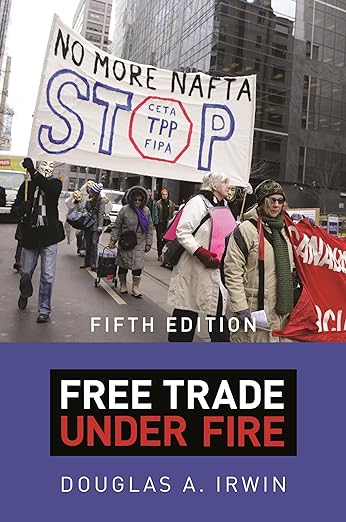For more than a century, economists have studied ways to make the law more effective. While the Journal of Law and Economics (the first field newspaper) was not founded until 1958, at the beginning of the 20th the economists of the century like Alfred MarshallAC Pigou, John Maynard Keynes and many others were busy studying how economics can inform legislation to improve outcomes.
However, moving from “blackboard” economics to the real world is a difficult undertaking. We have repeatedly seen economic policies fail to achieve their stated goals, from the grand central planning of the USSR to more mundane “market adjustments” like carbon taxes. There is an abundant literature on these failures, of which readers of this blog are certainly aware: the problem of knowledge highlighted by Hayek, questions of public choice such as rent-seeking and other problems of collective decision-making, etc. . But there is also the problem of translating the theory into something concrete. Economic theory uses many terms slightly differently than how they are typically used. Translating these terms into legislation is tricky. The example of dumping will demonstrate this.
A little business before we begin: I assume here that the goal of legislation is to improve economic outcomes as defined in the neoclassical sense: maximizing total welfare. My general argument about the difficulty of aligning legislation with objectives will not change if this assumption is not tested, even if the examples will.
Dumping is a process by which a company sells at a loss in an attempt to gain market share by driving out competitors. There is an argument that such behavior is anti-competitive and will lead to worse economic outcomes. Economists generally reject this argument (indeed, one of the first articles in the Journal of Law and Economics is a classic piece that dispels this myth), although it can still be seen as anti-competitive and not welfare maximizing. To this end, there are laws at the US federal government level and at the international level (World Trade Organization) that prohibit dumping by domestic and international companies.
But there is a significant difference between economic dumping (i.e. dumping as defined in economics) and legal dumping (i.e. dumping as defined in the legislation). In economics, dumping occurs when a good is sold below average total cost. For the economist, “cost” includes both explicit (monetary) and implicit (opportunity) costs. Explicit costs are easy to identify, but implicit costs are much more difficult to identify. Despite a clear definition, economic dumping is difficult to identify. So when legislation is written to try to improve economic outcomes, lawmakers must use something more measurable. Hence the legal definition of dumping.
Legal dumping is something completely different. Legal dumping is simply a good being sold below its “fair value.” But what is fair value? The Department of Commerce and the U.S. International Trade Commission (the two agencies responsible for investigating unfair international trade practices) have three methods for determining fair value: 1) what is the price of the good in the country of origin , 2) what is the price of the product. well it’s in some 3rd country, 3) what is the “constructed” price of the good (the cost of manufacturing the good, plus a certain mark-up determined by the Ministry of Commerce).
Note that the legal definition of dumping is very different from the economic definition. Indeed, the two describe very different practices! From an economic perspective, deviating from one of the three descriptions of “fair value” does not imply unfair or uncompetitive behavior. Indeed, the departure could be a competition And improved well-being! We should expect prices to differ across markets (supply and demand exist locally). Furthermore, where economics views the price of a good as emergent based on marginal benefit and marginal costs, the legal definition of dumping views the price as being known in advance and simply a function of explicit costs.

Due to the unclear legal status of dumping, this sector is very prone to corruption. Companies tend to use dumping as a hammer to fight competitionespecially domestic competition. The tool intended to prevent unfair practices ends up encouraging unfair practices. In short, by attempting to translate economic theory into legislation to actively direct outcomes, the legislation generates the very outcomes it was trying to prevent! (For a comprehensive review of the literature on the anti-competitive nature of anti-dumping legislation, see Free trade under fireChapter 5.)
One might respond: “But Jon, you cunning and handsome devil, this just shows that the legislation can still be improved.” There is no difficulty here. But I do not agree. A good scientist is comfortable with the fact that there are many unmeasurable factors that influence our behavior. In economics, costs are an example: costs are ephemeral, psychological and subjective. Costs and their interpretation vary from person to person and from situation to situation. It is impossible for an outside observer ex ante to find out what another person’s costs are. Indeed, the decision maker may not even be aware of the costs they face. Legislation must rely on approximations, such as accounting costs, which do not translate the information in the same way. Therefore, translating economic theory into enforceable legislation faces an uphill battle.
Dumping is a particularly obvious example of the difficulty of translating theory into legislation. But even if everything goes perfectly, there are always unexpected consequences. Sticking to trade, Trump and Biden’s explicit goals for tariffs were to raise domestic prices of goods in order to discourage imports. It worked as expected. But the unintended consequence of reduce exports also happened. Let me end with what I call Jordan’s Law of Unintended Consequences (named after fantasy author Robert Jordan): “The law of unintended consequences, stronger than any written law.” Whether or not what you do produces the desired effect, there will be at least three that you did not expect, and one of the generally unpleasant ones” (from The path of daggers by Robert Jordan, page 334).
Jon Murphy is an assistant professor of economics at Nicholls State University.


